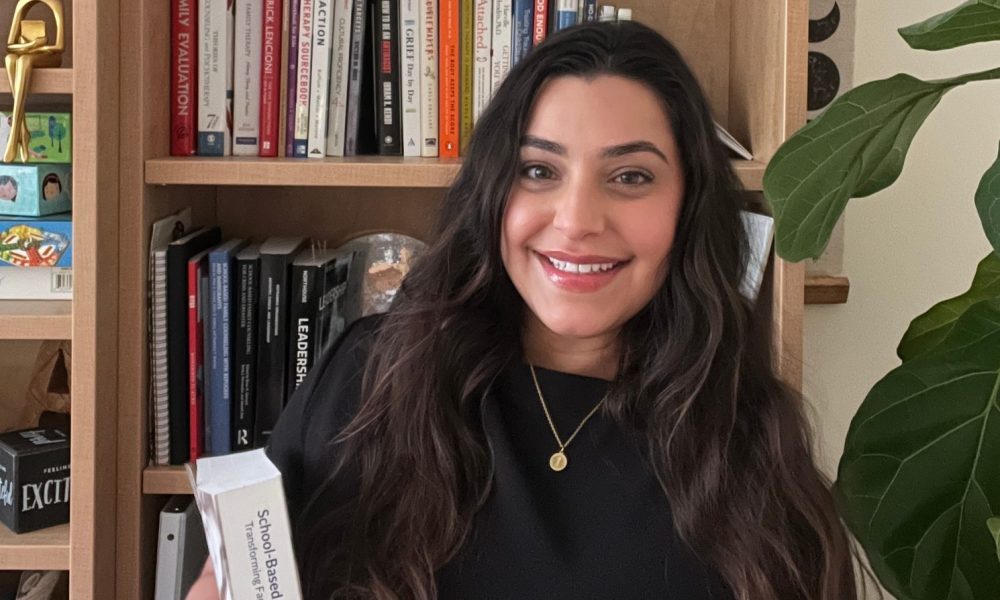

Today we’d like to introduce you to Alia Elasmar.
Hi Alia, thanks for sharing your story with us. To start, maybe you can tell our readers some of your backstory.
I am a Licensed Marriage and Family Therapist and a professor at Cal State LA’s School-Based Family Counseling program, where I have the honor of teaching future therapists and school counselors and supervising the on-campus community clinic. I am also a board member and supervisor at Amal Center, a Los Angeles-based youth diversion program. Moreover, I am currently pursuing my doctorate degree in Organizational Change and Leadership at USC. Growing up as a wallflower, it was very easy for me to blend in and observe interactions around me, especially around conflicts. What resonated with me the most was to notice the opportunities people missed to say the things they mean and mean the things they say toward loved ones. I remember watching conversations and intuitively feeling what the person wanted to say, but they couldn’t figure out how to say it in a conducive manner. This inspired me to want to help people work past their socio-emotional barriers so that they can feel more fulfilled with themselves and their relationships. As I began to pursue a career in mental health, I gravitated towards trauma work. It might seem cliche, as I am 1st Gen born from a community of intergenerational trauma, but trauma is so prevalent in our society today, and we need more centers and organizations that focus on repairing trauma.
As an undergraduate at Cal State Long Beach, I had the opportunity to participate in a graduate-level study that earned a sizeable grant from the city of Long Beach, resulting in the opening of the Long Beach Trauma Recovery Center. Simultaneously, I was working in K-12 schools and realized the need for crisis response interventions in and out of the classroom. Eventually, as I began graduate school for MFT and gained more experience and training, I started to lead in crisis response teams on different campuses. In crisis work, you’re really present for students’ and families’ most vulnerable moments, and I take that role very seriously, so much so that I’ve helped districts rewrite protocols around student safety and crisis response and have also co-authored a couple of books pertaining to crisis response in schools.
Over time, I began to realize how the work I was doing was interconnected. Our country’s mental health system is very individualistic; however, when I work with an individual, I realize I am also working with their community (family, friends, etc.). Those support systems are such an integral part in overcoming mental health challenges, especially amidst a pandemic and our influential digital age. I am now at the forefront of many initiatives involving crisis, trauma, and DEI, i.e., restructuring mental health and counseling programs, providing training and consultation of these topics to school teams and administrators, and working with superintendents to realign district policies to ensure that schools are up to date on the needs of the communities they serve. Now, I integrate these specialties to address challenges from the micro to the macro level and find it very rewarding for both myself and the communities I serve.
We all face challenges, but looking back would you describe it as a relatively smooth road?
Not at all. What caught me off guard when I started working in the mental health and education field was the need for strong and ethical leadership. Anyone who works in either of these fields can tell you that the obstacles of navigating these systems are near and many, particularly in a society that is constantly evolving. Over the course of my career, I’ve collaborated with approximately ten school districts in the LA/OC area and I’ve seen many school teams put all of their hearts and hard work in serving our students in the best way that they can but feel lost and fall short in addressing really impactful social issues around wellness, safety, diversity, equity, and inclusion. At the start of my career, I never envisioned leadership as a focal point or a role for myself. However, the realities have proven to be demanding. With new problems emerging, there isn’t a lot of time, space, or resources to address those issues in an effective manner. Oftentimes, it felt like our teams were trapped in a vicious cycle of putting out fires instead of effectively resolving them so we can focus on the work we signed up for. Hence, what inspired me to go back to school and study strategies for organizational change and leadership.
We’ve been impressed with Olea Counseling and Consulting, but for folks who might not be as familiar, what can you share with them about what you do and what sets you apart from others?
As I’ve had the honor of being trusted by organizations to help improve their work environments and counseling systems, it has motivated me to transition from a school counselor to opening my own practice, Olea Counseling and Consulting. Olea Counseling and Consulting is inspired by my identity as a Palestinian woman and the challenges I faced in navigating the mental health and education system. The name Olea is derived from the scientific name of olive trees, which symbolize resilience, peace, adaptability, interconnectedness, growth, and renewal- all of which individuals, families, and organizations strive for and deserve. My vision for my practice is for individuals and organizations to draw inspiration from the olive trees’ capacity to endure, adapt, and thrive. The deep interconnecting roots of olive trees highlight the importance of collaboration and interconnected efforts in therapy and organizational change.
Similarly, the enduring nature and continuous growth of olive trees parallel the potential for ongoing personal development and renewal within systems. Adaptability is also essential for organizations to address evolving needs and challenges. Overall, the symbolism of olive trees highlights the significance of supportive networks and continuous improvement in fostering well-being and success. Olea CC offers individual, couples, and family counseling. I am trained in different types of trauma therapy, including EMDR and Trauma-focused cognitive behavioral therapy. Olea CC also offers consultation, which can range from short-term services for organizations, such as training pertaining to diverse, equitable, and inclusive spaces and practices, crisis response, leadership development, organizational development, and wellness workshops, to long-term services, such as restructuring departments, workplace culture, etc. on a multi-tiered system. I take pride in the combination of my pedagogy. I don’t see many organizations that combine the mental health and wellness approach to the macro level of organizational change.
The pandemic taught us that the capitalist view of compartmentalizing mental health can be detrimental to organizational success. Our society is now demanding that employers and organizations place mental/social wellness and healthier work environments at the forefront of their mission and vision. It’s crucial to not only integrate these ideals into their mission and vision but also actively implement and uphold them. The research is showing that the less adaptable an organization is to the needs of their team, the less likely they will survive in this economy. OCC’s goal is to help organizations of multiple disciplines address these needs in the most effective way possible.
Is there any advice you’d like to share with our readers who might just be starting out?
Well… the therapist’s advice is to get therapy. All humor aside, the common theme I noticed in the various roles I held was that your mental health is connected to everything. I think by now, it’s common knowledge that your mental health (the cycles, environments, and dynamics that you’ve adopted) determines who your partners and friends are, but it’s so much more than that. Our mental health impacts how we manage our finances, how we manage our workload, our likelihood for success, how we operate in our different roles, and how we lead or don’t lead our lives. Some of my toughest obstacles in the field involved witnessing leaders having the opportunity to make good judgment calls for their teams and the well-being of the communities they serve but avoid it or fumble completely because of some lack of self-reflection or self-work. Their blind spots prohibited them from either asking for help or managing emotions around very difficult decisions. My graduate students are sick of hearing me tell them to get therapy because I strongly believe that if it wasn’t for my own therapy work (shout out to my therapist), I would not be where I am today. I would not be as effective as a therapist and would not have taken risks in my career that led me to open up to more opportunities. I would have crumbled under hierarchical pressures and decisions that would have caused harm to the communities I served.
The courageous conversations that people are now wanting to have all rely on your ability to hold the space emotionally and intellectually to have them. Whether or not you’re in the education or human services fields, you need a space to process and reflect on what biases are creating blindspots in your relationships, roles, and purpose. Which leads me to my last piece of advice: after working with a variety of people, both personally and professionally, I’ve learned that people’s opinion of you and what you’re doing is a projection of themselves. We are bombarded with opinions on a daily basis, both positive and negative; it can be confusing and overwhelming. It’s really important to figure out your “north star.” On your moral compass, where does “north” point to? For me, regardless of the role I am in, it is very clear to those I serve and my teams that student/client safety and wellness are always the priority; therefore, the basis of my decision-making. It may not have resonated with each and every colleague, but it brought understanding because that vision was clear. I am thankful for my continuous self-work because it gives me the unwavering foundation to continue with fortitude on this long and rewarding journey.
Contact Info:
- Website: oleacc.com
- Instagram: @OleaCounseling
- Other: https://www.psychologytoday.com/us/therapists/alia-elasmar-hermosa-beach-ca/706823
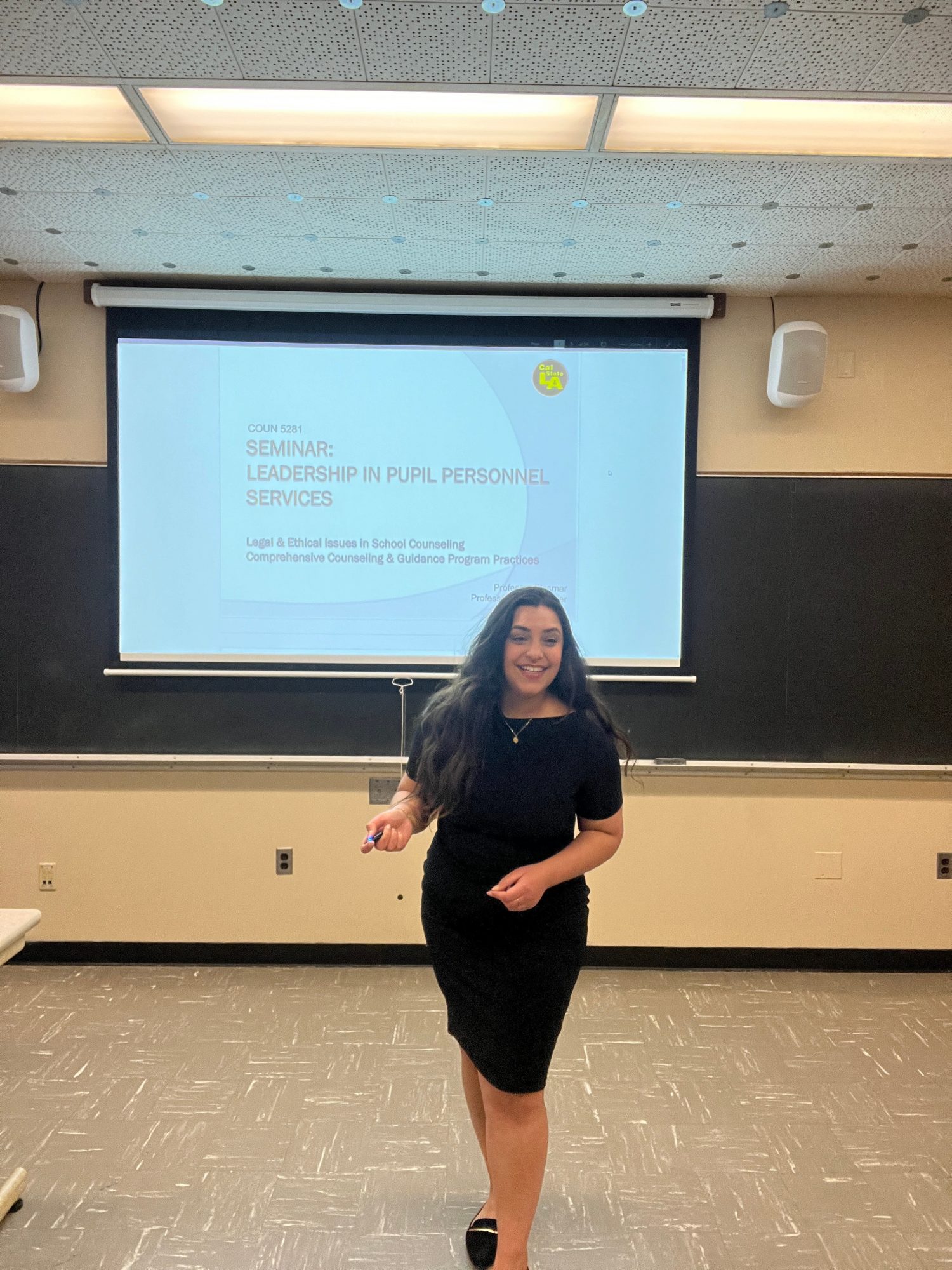
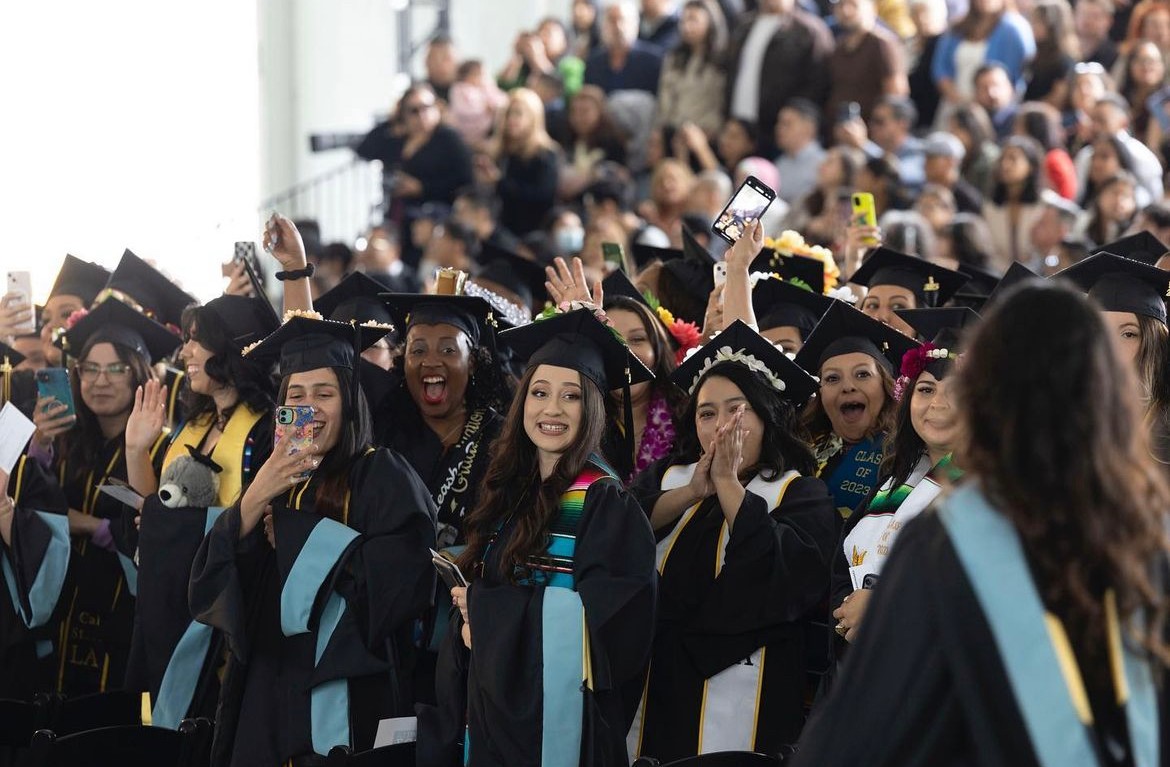
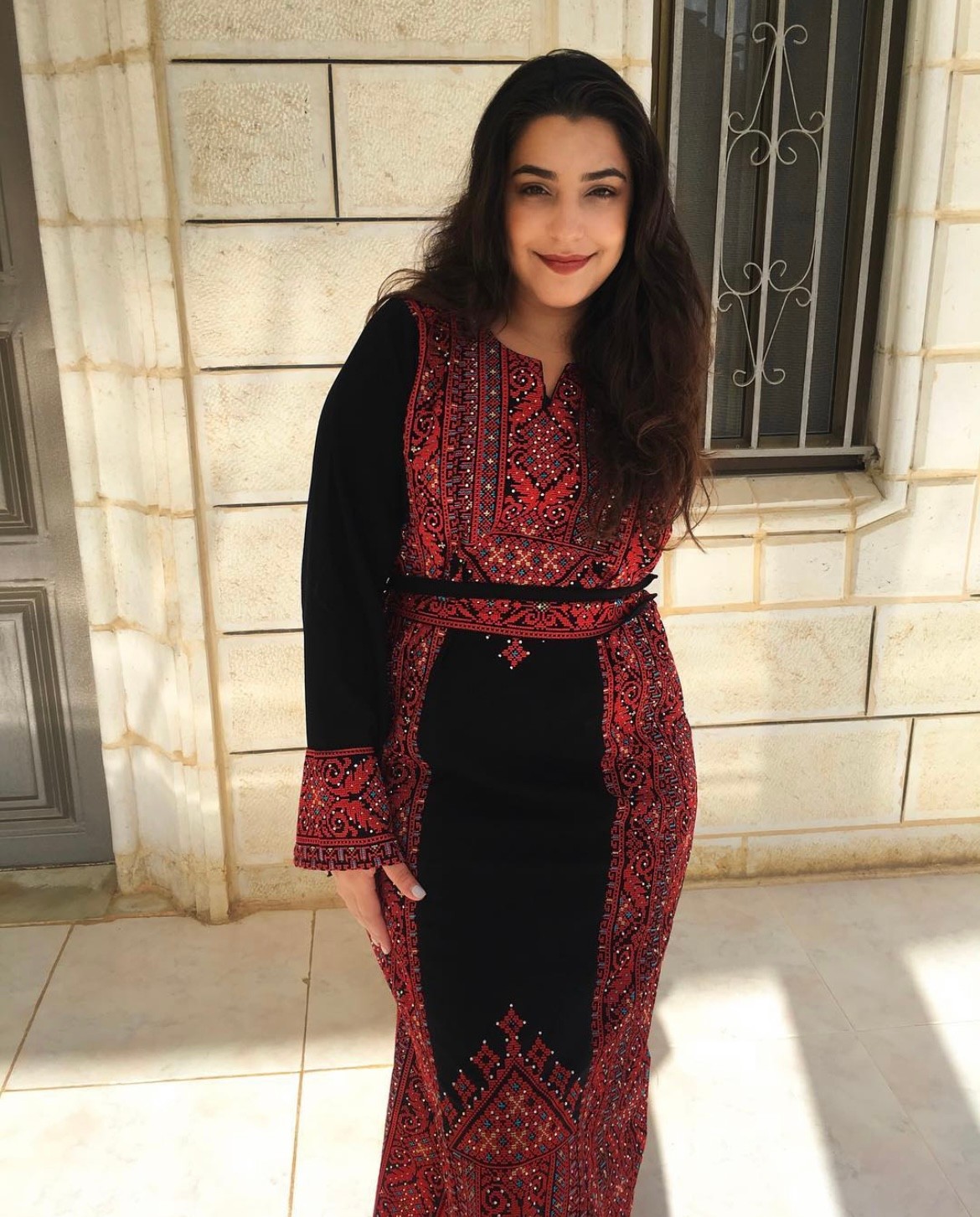
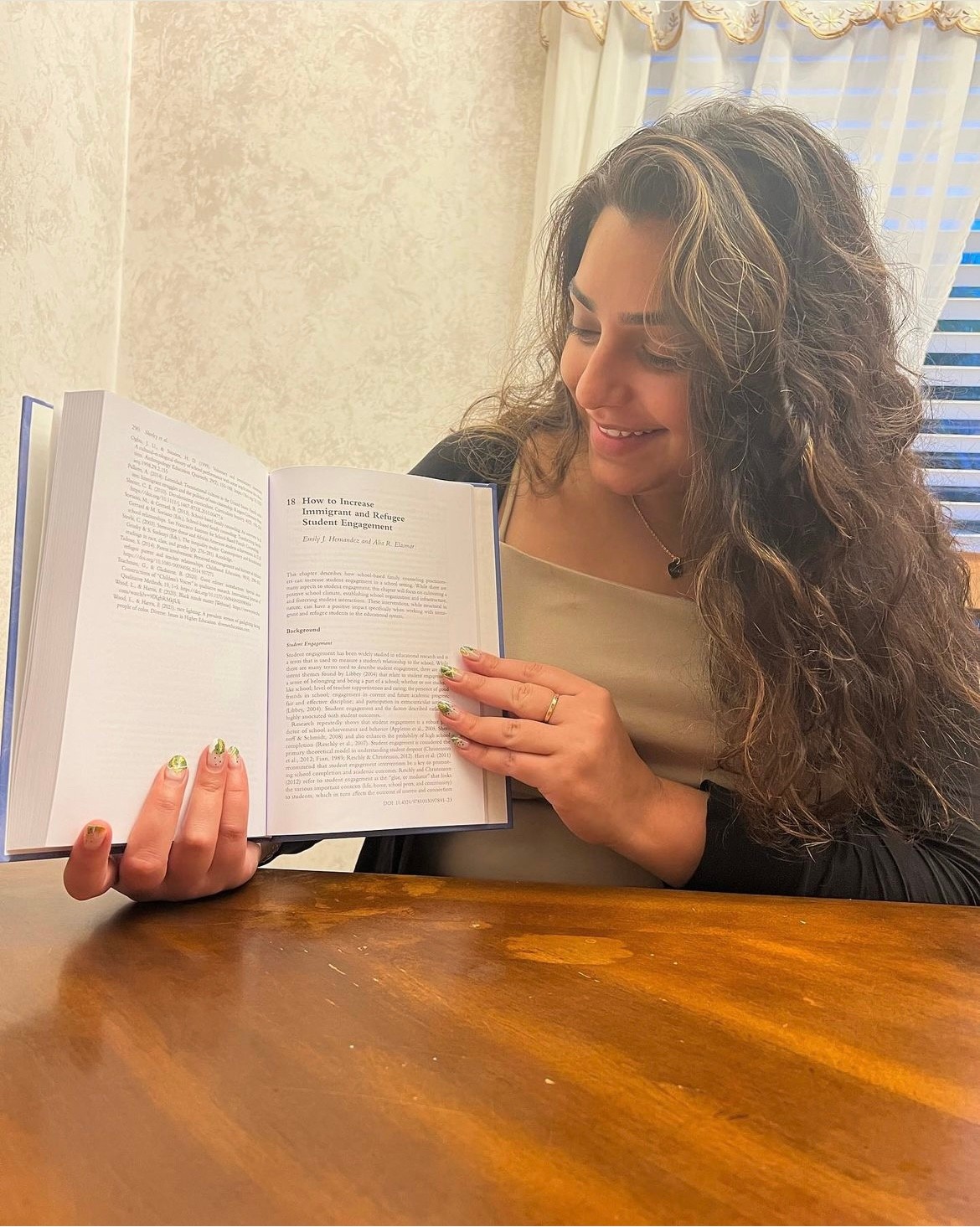
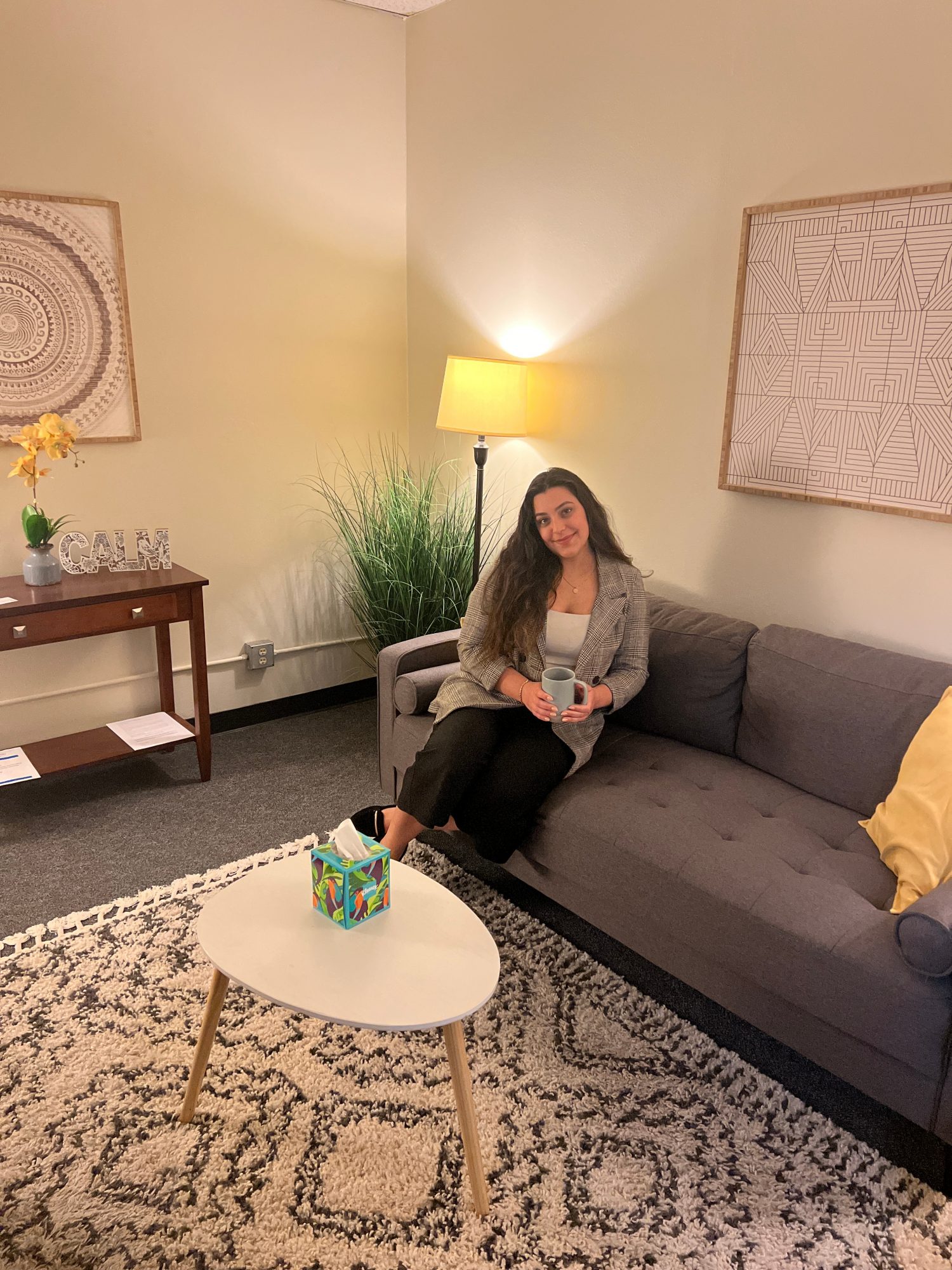
Image Credits
Graduates and Professor Elasmar, photo credit: Cal State LA College of Education.














